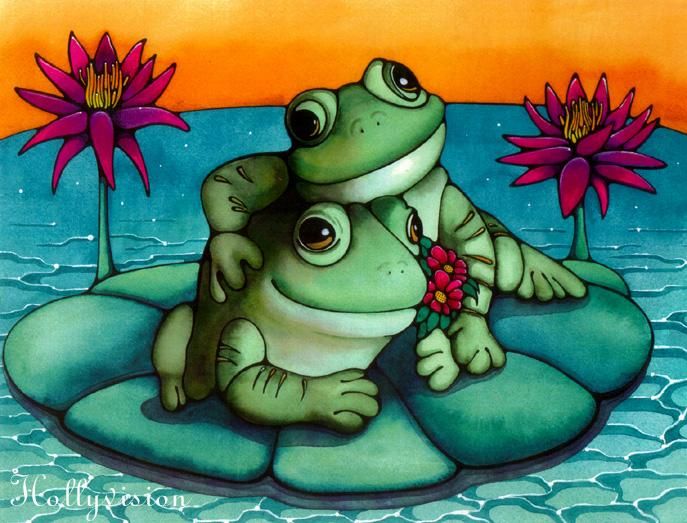A recent study followed 1500 older people for ten years. The study found that those individuals who had a large network of friends were 22% less likely to die during those ten years. That's huge! The question was then asked, why does this happen? The answer is thought to be because good friends keep us from doing things we shouldn't do, like smoking too much or drinking in excess. Friends also boost our mood thus helping to fight off depression. They provide us with emotional support.
One of the best things about aging is that as we get older, humans (and us frogs, too) tend to be choosier about who we spend our time with. Older people, then, spend more time with the ones they like. That makes for less trouble and less drama. Interestingly enough, close relationships with children, and relatives in general had virtually no effect on longevity. While family ties are important, they seem to have little effect on survival.
Lots of research has been done on how social support impacts health. Whether it's cancer (treatments like chemotherapy) or other serious or chronic diseases, friendship helps us deal with stress better, can make treatments more effective, and even helps us feel less pain. The broader effect of friendship is that friends generally encourage us to take better care of ourselves. They provide us with high self-esteem. Friends can also make us feel as if we have more control over our lives. One study shows that humans with fewer friends are more likely to die soon after having a heart attack than those who have a good social network. Having good friends may even reduce your chances of catching a cold!
People with good friendships have fewer cardiovascular and immune problems, along with lower levels of cortisol - a stress hormone.
Humans are social animals and thrive in groups. Humans have always needed others for survival. It's in your genes! People with large social groups tend to feel more at peace, which leads to better health. Friends can help lower our level of stress. But, occasionally, they can increase our stress level, too. But that doesn't mean we should give up having friends. Julianne Holt-Lunstad, Ph.D, associate professor of psychology at Brigham Young University says, "One thing research shows is that as one's social network gets smaller, one's risk for mortality increases."
If you're a loner type, you might be asking, "What about me? Am I at greater risk of dying sooner?" The answer is yes, but only if you feel lonely. "Older lonely people tend to have higher blood pressure and poorer sleep quality. They also were more tense and anxious", states Holt-Lunstad. But if you are generally happy with your life and alone by choice, that's a different story.
If you haven't already guessed it, women are better at keeping friendships than men. While men's friendships tend to be more about helping each other, women's friendships have a more emotional quality like listening to their stories and helping them come us with solutions.
"True friendship multiplies the good in life and divides its evil. Strive to have friends, for life without friends is like life on a desert island...to find one real friend in a lifetime is good fortune; to keep him is a blessing." ~ Anonymous
If you have a good friend, count it among your blessings. And if you don't, it's never too late to make one. Just remember that to have a friend you first need to be one.
Peace

 RSS Feed
RSS Feed